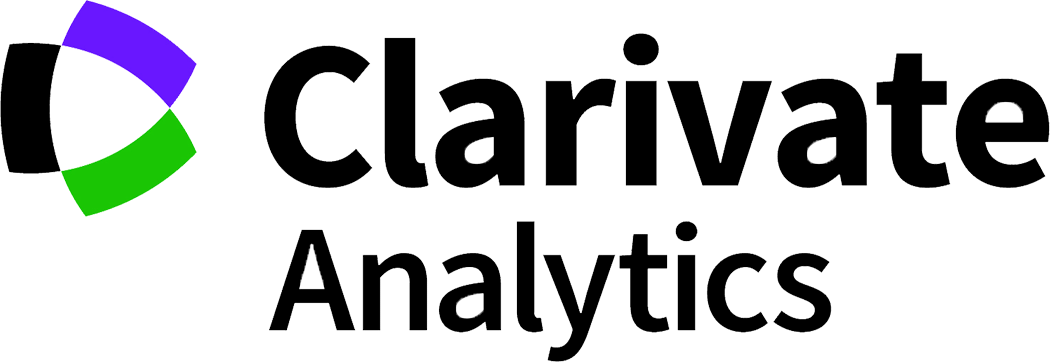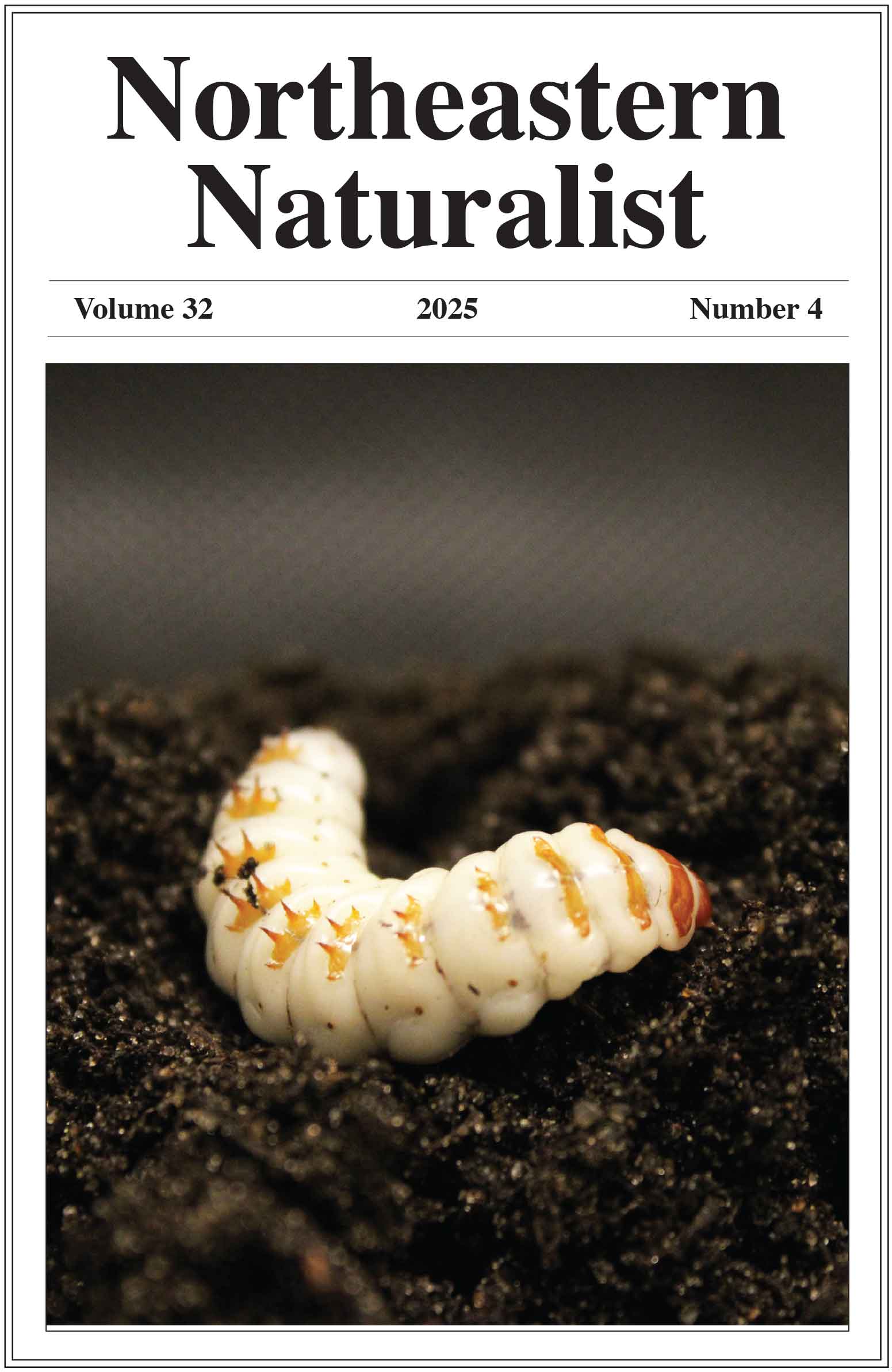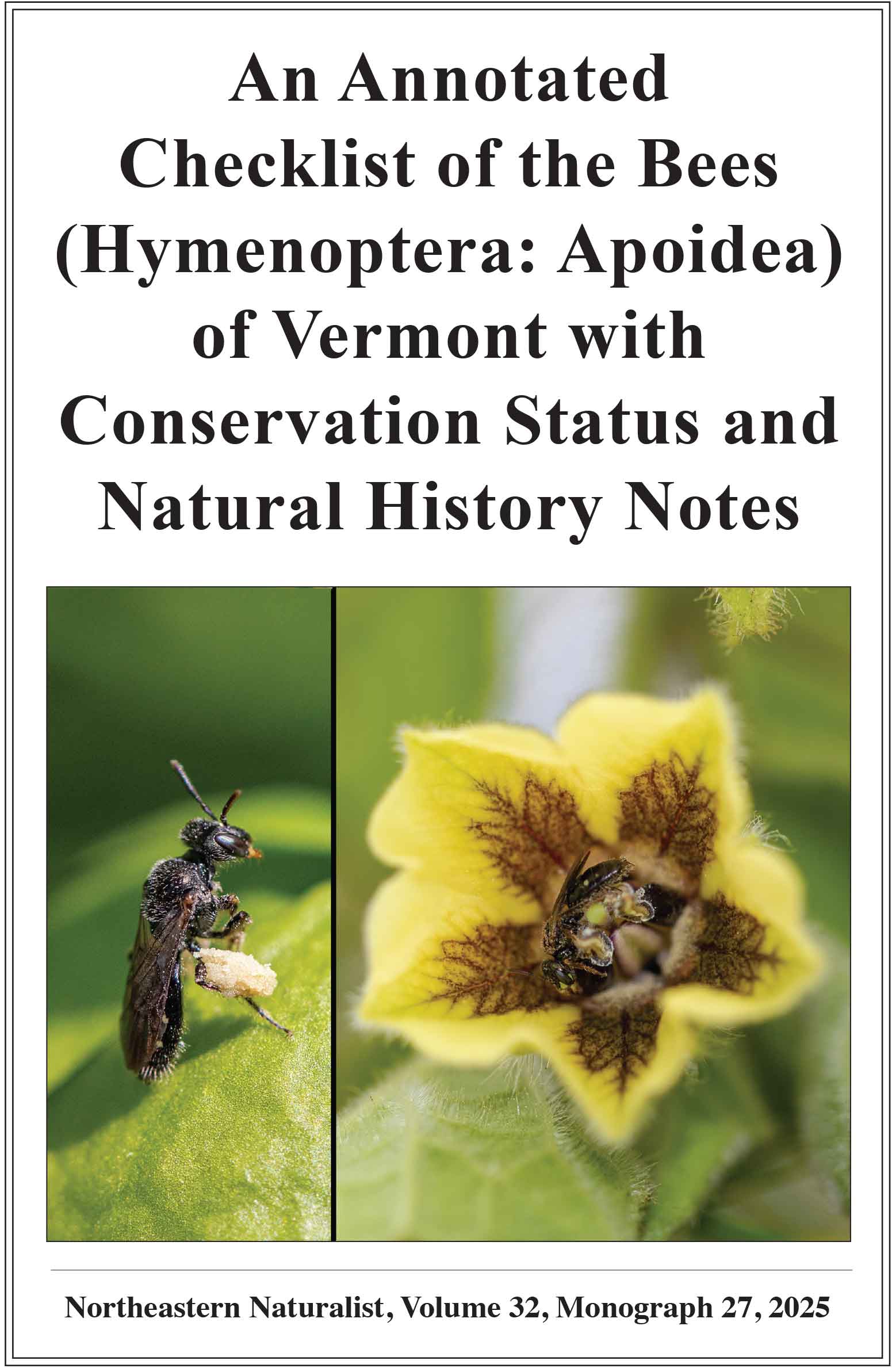Observations of Snakes and Game Birds in a Managed Pine Barren in Massachusetts
Michael E. Akresh1,2,*, Evan D. Meeker1, and David I. King3
1Department of Environmental Studies, Antioch University New England, Keene, NH 03431. 2Department of Environmental Conservation, University of Massachusetts Amherst, Amherst, MA 01003. 3US Forest Service Northern Research Station, Amherst, MA 01003. *Corresponding author.
Northeastern Naturalist, Volume 29, Issue 1 (2022): 11–27
Abstract
Pinus rigida (Pitch Pine)–Quercus ilicifolia (Scrub Oak) barrens require active management to maintain, but the effects of forest management on snakes and game birds is poorly understood. We conducted vegetation surveys and examined incidental encounter data of a variety of snake and game bird species on a managed pine barren in Montague, MA, from 2008 to 2018. We recorded 73 observations, including 44 Coluber constrictor constrictor (Northern Black Racer) and 7 Meleagris gallopavo (Wild Turkey) nests. All of our observations were in managed habitats (Scrub Oak, treated Pitch Pine, and powerline corridors) which had low (<30%) tree canopy cover. Observed densities of Northern Black Racers did not significantly vary among these open-canopy habitats, or with time since treatment between 2 to 8 years since initial harvest in treated Pitch Pine. We did not conduct extensive surveys in unmanaged, closed-canopy Pitch Pine forests; thus, we were unable to determine the relative use by racers and game birds of unmanaged versus managed habitats. Nevertheless, snakes and game birds were using and nesting in the managed habitats at least to some extent. Our findings on racers and game birds from this study are preliminary, but combined with results from other studies, they suggest that ecosystem management in pine barrens can benefit snakes and game birds, along with a wide variety of other taxa.
![]() Download Full-text pdf (Accessible only to subscribers. To subscribe click here.)
Download Full-text pdf (Accessible only to subscribers. To subscribe click here.)
Access Journal Content
Open access browsing of table of contents and abstract pages. Full text pdfs available for download for subscribers.
Issue-in-Progress: Vol. 33(1) ... early view
Check out NENA's latest monograph and Special Issue:













 The Northeastern Naturalist is a peer-reviewed journal that covers all aspects of natural history within northeastern North America. We welcome research articles, summary review papers, and observational notes.
The Northeastern Naturalist is a peer-reviewed journal that covers all aspects of natural history within northeastern North America. We welcome research articles, summary review papers, and observational notes.